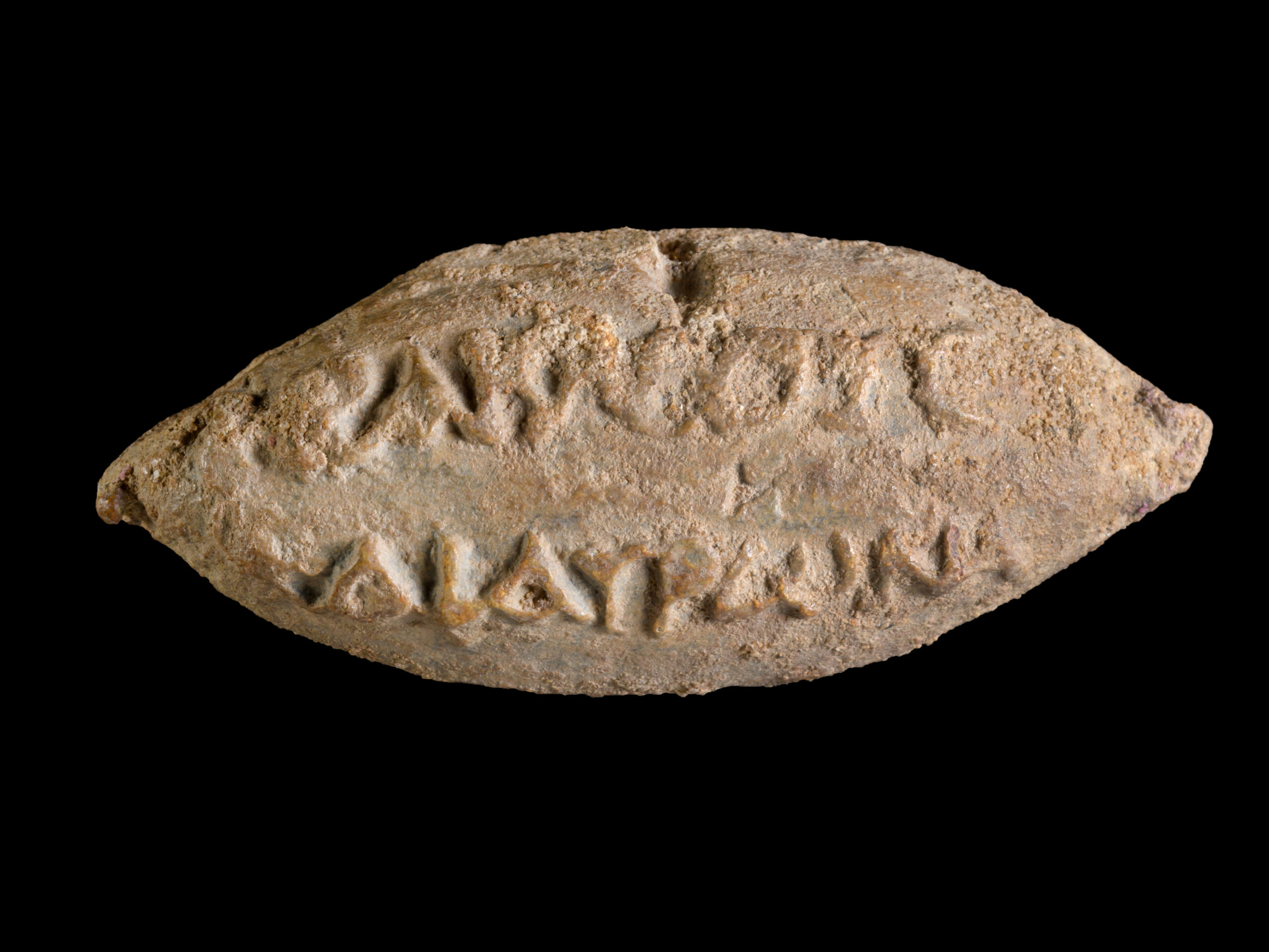A rare lead sling bullet was discovered during excavations of the Israel Antiquities Authority (IAA) in Yavne, the IAA announced Thursday. The artifact might have belonged to a Greek soldier, bearing a magic inscription intended to instill fear in the enemy.
The sling bullet, estimated to be 2,200 years old, was inscribed with the Greek phrase “Victory of Heracles and Hauronas”. Heracles, known in the West as Hercules, was a divine hero in Greek mythology and the son of the pagan god, Zeus. The researchers explained that the inscription was intended as a threat to the enemy and not as a supplication to the pagan deities.
“The inscriptions were part of psychological warfare, the main purpose of which was to terrorize the opponent, and in addition, to unite the warriors and raise their spirits,” Prof. Yulia Ustinova of Ben Gurion University of the Negev said in a statement.
“Lead sling bullets are known in the ancient world beginning in the 5th century BCE, but in Israel few individual sling bullets were found with inscriptions,” she continued. “The inscriptions convey a message of unifying the warriors with the aim of raising their spirits, scaring the enemy, or a call intended to magically energize the sling bullet itself.”
Prof. Ustinova added that Hauron and Heracles were considered the divine patrons of Yavne during the Hellenistic period.
“Actually, the inscription on a sling bullet is the first archaeological evidence of the two guardians of Yavne, discovered inside Yavne itself. Until today, the pair was only known from an inscription on the Greek island of Delos,” the professor noted.
The length of the sling bullet is 4.4 cm, and it was intended to be used in an early sling. Such bullets for slings are known in the ancient world beginning in the fifth century BCE but very few individual sling bullets were found in Israel with inscriptions.
Pablo Betzer and Dr. Daniel Varga, the directors of the excavation on behalf of the Israel Antiquities Authority said that despite the inscription, there is no way of knowing whether or not the projectile actually belonged to a Greek soldier though there is a chance that it was used during a conflict between the Greeks and the Hasmoneans.
“In the 2nd century BCE, pagan Yavne – which was an ally of the Seleucids (the Greeks who ruled Eretz-Israel), were subject to attacks by the Hasmonean armies,” the directors explained. “The Hasmoneans sought to subjugate the other nations and create a homogeneous and ‘pure state’ from a religious-ritualistic point of view. The tiny lead sling bullets, announcing the imminent victory of the gods of pagan Yavne, is tangible evidence of a fierce battle that took place in Yavne at that time.”
The excavations in Yavne are a ‘mega’ excavation – one of the largest conducted as part of the Israel Lands Authority’s initiative to expand the city, in cooperation with the Yavne Municipality.
There will be an official presentation with free entrance to the public on December 13 at the Yavne Culture Hall featuring the newly-found projectile.



